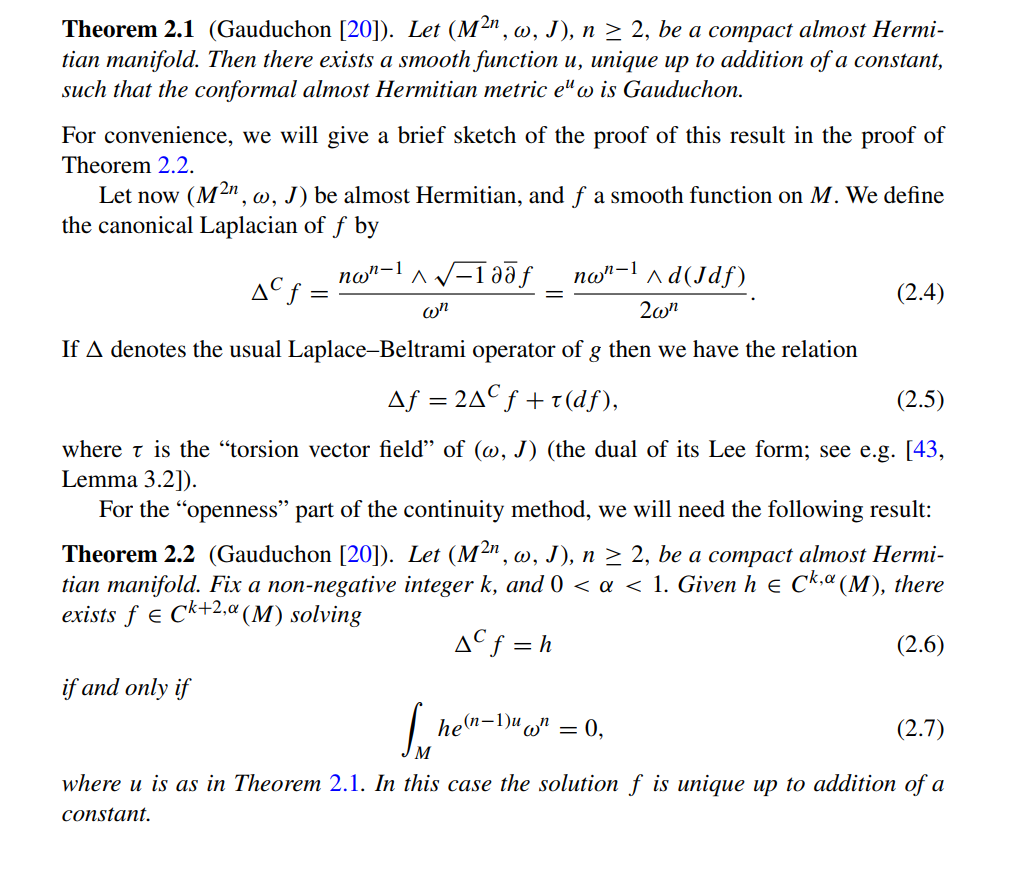You can search the topics related to Chern-Laplacian on $(M,\omega)$
$$
\Delta^{C h} f=\Delta_d f+(d f, \theta)_\omega.
$$ Actually it's just a Hodge- Laplacian plus a linear gradient term, here $\theta$ is the Lee form of $\omega$. For the first question, this requires the metric to be Gauduchon ($d^* \theta=0$), so we can integrate the gradient term by part to get that $$
\int_M \Delta^{Ch}f=0.
$$
For the second question, for $$
\Delta^{Ch}u=f,
$$
you can always find a solution when the metric is in the conformal class of the original metric, because in the conformal class there must be a Gauduchon metric, so if we consider
$$
\left(\Delta^{C h}\right)^* g=\Delta_d g-(d g, \theta)_\eta
$$
here $\eta$ is the new Gauduchon metric and $\theta$ is the Lee form of $\eta$. We will have
$$
0=\int_M u\left(\Delta^{C h}\right)^* u =\int_M\left(|\nabla u|^2-\frac{1}{2}\left(d u^2, \theta\right)\right) =\int_M|\nabla u|^2 ,
$$
which means kernel of $\left(\Delta^{C h}\right)^*$ is the constant set. Since the integral of $f$ is zero, it means that $f \in\left(\operatorname{ker}\left(\Delta^{C h}\right)^*\right)^{\perp}=\operatorname{imm} \Delta^{C h}$, which proves the existence of the solution.
And when the manifold is kahler, the gradient term will vanish, then the Chern connection is the same as Levi-Civita connection, you can refer to Daniele Angella's work on this topic, for example
On Gauduchon connections with Kähler-like curvature
Besides, the prescribed Chern scalar curvature problem is related to Kazdan-Warner equation, but there are some open problems in this topic, you can read the following paper if you are interested
On Chern-Yamabe problem
The prescribed Chern scalar curvature problem
The prescribed Gauduchon scalar curvature problem in almost Hermitian geometry

